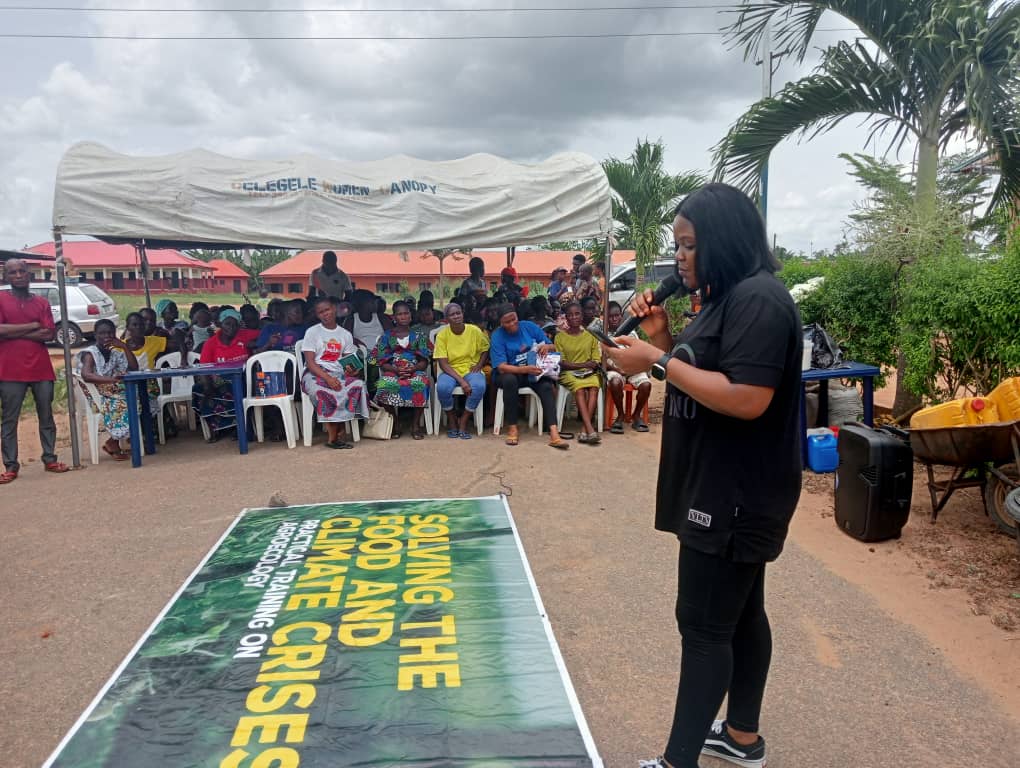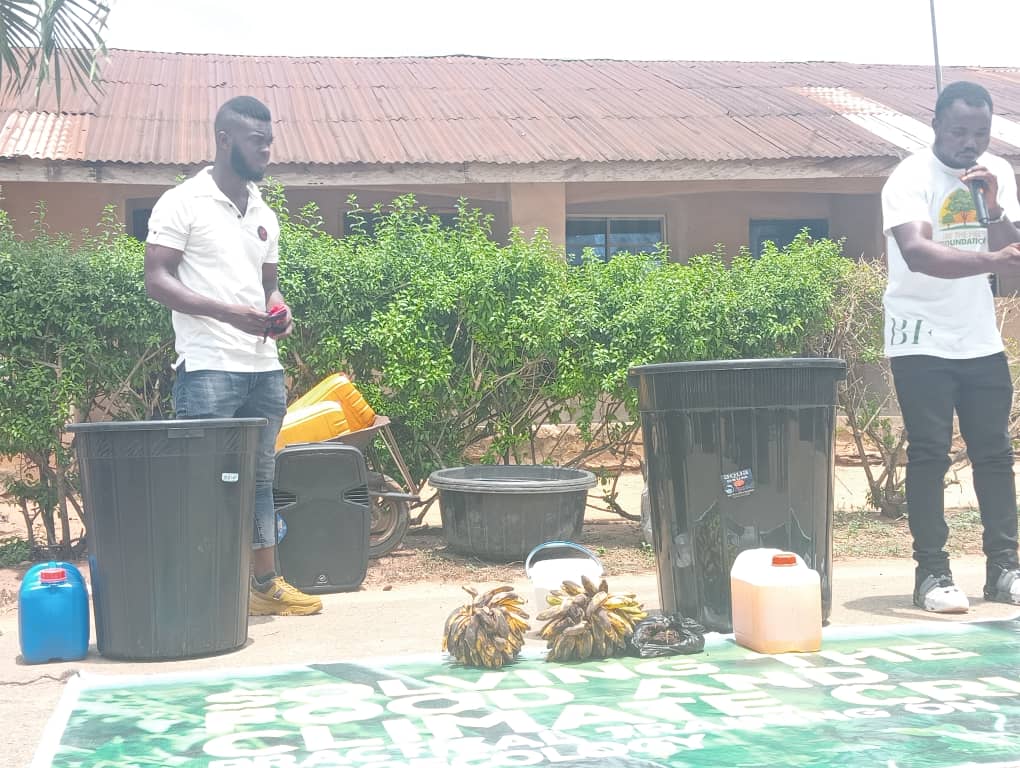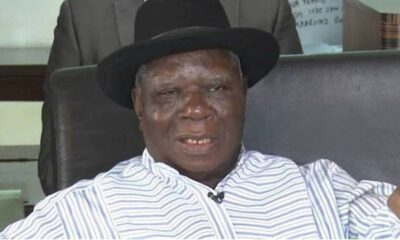News
Foreign Students: UK Varsities May Fall Into Deficit, Says Report
Published
4 months agoon
By
Editor
Many universities in the United Kingdom are at risk of falling into financial deficit due to the astronomical decline in international students after Prime Minister Rishi Sunak’s ban on bringing dependants into the country.
The PUNCH reports that the Home Office of the United Kingdom announced that it had commenced the implementation of its policy banning Nigerian students and other overseas students from bringing in dependants via the study visa route.
In a post on X (formerly Twitter), the Home Office reiterated that only those on postgraduate research or government-sponsored scholarship students will be exempted from the development.
“We are fully committed to seeing a decisive cut in migration. From today, new overseas students will no longer be able to bring family members to the UK. Postgraduate research or government-funded scholarships students will be exempt,” the Home Office said.
READ ALSO: Japa: Nigeria In Deep Crisis, ASUU Laments
Meanwhile, Financial Times on Friday reported the chief executive of Universities UK, Vivienne Stern, who represents more than 140 universities, said the sector was facing the prospect of a “serious overcorrection” thanks to immigration policies that deterred international students from coming to study in Britain.
“If they want to cool things down, that’s one thing, but it seems to me that through a combination of rhetoric, which is off-putting, and policy changes . . .[they have] really turned a whole bunch of people off that would otherwise have come to the UK,” Stern told the Financial Times.
Stern’s plea came as it emerged that some top universities, including York, which is a member of the elite Russell Group, were being forced to soften their entry requirements in order to maintain numbers of overseas students.
“The government needs to be very careful: we could end up with, from a policy point of view, what I would consider a serious overcorrection,” she added.
READ ALSO: Japa: Netizens Share Visa Denial Experiences
With the £9,250 domestic tuition fee effectively frozen for the past decade, UK universities have increasingly relied on non-EU students to make ends meet, with fees from non-EU students now accounting for nearly 20 per cent of sector income.
Universities are warning privately that numbers have softened sharply this year following a series of hostile policy moves by the government, with indications that enrolments may have fallen by more than a third from key countries, including Nigeria and India.
One senior university insider told the FT that the sector as a whole had been “spooked” by data that showed the number of international students taking up places in January 2024 was “way below the bottom end of projections for everyone”.
In January, Sunak highlighted changes in government policy to stop international graduate students from bringing family members to the UK, adding the policy was “delivering for the British people.”
READ ALSO: Japa: Canada Extends Invitation To Plumbers, Carpenters, Others
The government also announced in December that it was reviewing the so-called “graduate route” enabling international students to work in the UK for two years after they graduate and announced a crackdown on “low-value courses”, even though only 3 per cent are failing to meet criteria set out by the regulator.
Data from Enroly, a web platform used by one in three international students for managing university enrollment, showed that deposit payments were down 37 per cent compared to last year.
A new analysis for UK by consultants PwC found that the combination of falling international student numbers, frozen tuition fees, rising staff wage bills, and a softening in UK student numbers was leaving the sector facing a perfect storm.
“You take those things together, and you’ve got a big problem,” Stern said, warning that the government needed to wake up to the risk posed to a sector that contributes £71bn to the UK economy every year.
READ ALSO: Facts To Know About The Africa Cup Of Nations
The PwC analysis was based on 2021-22 financial returns for 70 UUK members in England and Northern Ireland and found that about 40 per cent are expected to be in deficit in 2023-24, falling to 19 per cent by 2025-26.
However, Paul Kett, a former senior Department for Education official who now advises PwC on education, said the numbers reflected assumptions about spending and income growth that now looked highly optimistic given the policy environment.
The PwC analysis found that if the growth in international students stagnated in the 2024-25 academic year, the proportion of universities in the financial deficit would rise from 19 per cent to 27 per cent — but if numbers started to fall between 13 and 18 per cent then four-fifths would be in deficit.
On the other side of the ledger, it found that increasing fees by 10 per cent for UK undergraduates in 2024-25 would shrink the share of universities in deficit from 19 per cent to 7 per cent.
READ ALSO: FULL LIST: Not American Or British, See 2024 World’s Most Powerful Passports
The report said the effects of declining international enrolments could be compounded by other negative shocks, such as a rise in spending growth or a fall in domestic student numbers. It warned that mounting financial pressure could force universities to cut provision and delay investment, compromising quality for students.
Stern argued three interventions were necessary to put the sector on a stable footing: uprating tuition fees in line with inflation, increasing government teaching grants and stabilising the international market by dialling down negative rhetoric and ending question marks over the graduate route.
“You can take these individual scenarios that PwC looked at, and think that any one of them could tip a large number of institutions into a very difficult position, but the problem is that lots of those things are happening at once,” she said.
Robert Halfon, higher education minister, said: “We are fully focused on striking the right balance between acting decisively to tackle net migration, which we are clear is far too high, and attracting the brightest students to study at our universities,” he added.
You may like


Suspect Arrested Over Murder Of British-Nigerian Man In London


UK Slams Fresh Sanctions On Iran After Israel Attack


UK Varsities To Layoff Workers, As Enrolment By Nigerians, Others Dwindle


Switzerland Tops Most Powerful Passports In 2024


Three UK-based Nigerians Defraud Vodafone, Other Firms Of £429,304


FG, UK Firm Sign MoU For Port Harcourt–Abuja Rail Line

By Suyi Ayodele
We were in Abuja on an official assignment; one of the entertainment engagements of Globacom then. The phone rang. The leader of the team, a Director in the Marketing Communications Department, looked at all of us sitting at the table, brainstorming on the evening’s assignment. We got the message. The Big Man was at the other end. Silence! We could hear the voice from the other end, though the phone was not on speaker. “Awe o, we need you to be in Johannesburg this evening or first flight tomorrow. Do you have a South African visa?” Our Director responded: “No sir.” “Ok”. The line went off and we resumed our talk.
A few minutes later, the phone rang again and the Director jumped up, picking the phone and moving away from us. We were by the pool side of the hotel. I prayed silently that our boss would not fall inside the pool. He was just nodding his head, with intermittent “Yes sir”; “Mo ngbo yin sir”- I can hear you sir. The call ended and the Director returned to our table. “I need to take my passport in the room. Suyi, tell Tosin (one of the drivers attached to the project) to get the Hilux. We are going to the South African Embassy”, he announced. Minutes later, we were on our way to the embassy. I asked our boss what was in the offing. He responded: “Baba said someone will be waiting at the embassy.”
To cut the long story short, we got to the embassy, and we met a woman waiting for us. We were ushered in and the Director was taken into an inner office. Half an hour later, he came to join me at the waiting room. I asked him again (curiosity won’t kill my cat sha): “Are you getting the visa, today?” He answered that he was asked to wait. We didn’t have to wait long. A young man stepped out of one of the offices and asked our Director to follow him. A few minutes later, the man came out of the office and beckoned on me. In the car, he showed me his passport with the visa approval. Wao! Then, the director sent a message to the Big Man thus: “Thank you sir. I got the visa. Agba yin a dale -may you live long- sir.” The simple response from the Big Man reads: “That is why I am the Chairman. My name opens the door for you.” God, I must be a big man!
FROM THE AUTHOR: OPINION: Onitiri-Abiola And The Madness In Ibadan
Age grades are in three categories in my native place. The first set is known as “Boranje”, which literally means those who don’t give a damn about the consequences of their actions. They have the energy and they represent the restive segment of the society. Those in this category are materials for recruitment into the community’s army. The middle class is the Elekurupa. They are the moderates. They fill the gap between the first and the last categories. They are the intermediate class. The last group are those we call Agba Ule – Council of Elders. This categorisation is at the family level. They are the elders. Their first selling point is their wisdom. Whatever the Elekurupa cannot resolve, the Agba Ule class handles. They only refer very knotty issues to the Agba Ulu- council of community elders. Agba Ulu is presided over by the oba of the town. Incidentally, most Agba Ule are also members of Agba Ulu. So, whatever decisions taken at the level of Agba Ule are mostly sustained by the rulings of Agba Ulu. To get to this last grade, age counts. Depending on the level of longevity in a family, there are cases where people in their early 60s are still in the Elekurupa age grade. Whereas, in some families where they are not blessed with long life, some people in their 50s are already Agba Ule. However, anybody who has crossed the age of 70 is an Agba Ule. One unique mystery about Agba Ule is their ability to stand where others fail and fall. How is it?
There is a saying that illustrates that. It goes thus: Nnkan ti agba fi nje eko ti o ra lowo wa labe ewe. I attempt a transliteration here: what the elder uses in eating eko (corn meal) without smearing his fingers is underneath the leaf. Dr. Mike Adenuga Jr, the Chairman of Globacom, turned 71 years old yesterday, Monday, April 29, 2024. At 71, the man known as Mr. Chairman, is a qualified member of Agba Ule and Agba Ulu. Many things qualify him for that position. I would not be dwelling on those ones here, but, as an eminent Agba Ule, Dr. Adenuga has demonstrated over and over again that the mystery of the successes of his business empire lies only with him. Nothing demonstrates this more than the recent breakdown of the underwater cable services across the West African sub-region a few weeks ago. Globacom, the telecommunication outfit of the Ijebu businessman, has one of the independent, and the only single underwater cable owned solely by an individual, the Glo 1 Submarine cable that runs from Lagos through 13 different countries to the United Kingdom with a point of reference in New York, United States of America.
FROM THE AUTHOR: OPINION: Why Were Miyetti Allah And Tinubu’s Iyaloja In Ibadan?
Whatever it was that happened to other international underwater cables, such as the West Africa Cable System (WACS), the Africa Coast to Europe (ACE) and MainOne, Glo 1 remained standing. The company, Globacom, came up with a statement to reaffirm that its facility was not in any way affected by the damage that caused a lot of disruptions in the telecommunications industry with companies having huge bandwidth suffering unmitigated losses. In a discussion with some people while the submarine cable crisis lasted, someone asked why Glo 1 was spared. My immediate response to that is that the fortune or misfortune of any business concerns depends largely on the mission and vision of the promoter(s) of the business. And this is true with Globacom. It is practically impossible to divorce the resilience of the owner, Dr. Mike Adenuga Jr. from the success of the company.
The underlying principles of “People, Power, Possibilities”, on which the business was established cannot but speak for it when things are tough. If you have ever passed through Globacom, you would realise that ‘impossibility’ means “I’m Possible” in the system. Theirs’ is a diehard, never-say-no spirit which empowers them to navigate through the cruellest terrains. An average mid-level manager in Globacom is a super CEO of any other company. Why? Because Dr. Mike Adenuga Jr. ‘roasts’, ‘cooks’, ‘fries’ and ‘fires’ every fibre of his employees till they become the best anyone can be. The working environment may not be the best; it is no doubt an institution that brings the best out of the individuals in its employ.
In the introductory story of this piece, the Big Man, Dr. Mike Adenuga Jr. was quoted to have said his name opens doors. I think it does more than that. Nigerians will never forget that it is the name, Adenuga, that bailed them out of the financial enslavement of the earlier entrants into the nation’s GSM business by introducing the Per Second Billing System (PSB), at a time they were told it was not technically possible. What about the BlackBerry revolution: didn’t Adenuga’s name open that door? Do we talk about the first deployment of 3G network, rural telephony and cheapest acquisition of telephone and people-friendly and affordable tariffs? Nigeria’s entertainment industry today is what it is because a Dr. Mike Adenuga opened the door of bountiful corporate endorsements for our artistes.
So, if you have ever wondered why Glo 1 stood gidigba while others fell yakata, know that the man behind the business, Dr. Mike Adenuga Jr. is a complete Agba Ule. And as such, know also that Nnkan ti agba fi nje eko ti o ra lowo wa labe ewe!
Here is my toast to the epitome of Nigeria’s resilience at 71! Here is wishing Mr. Chairman many more years in sound health. Happy birthday, the Great Guru himself! Agba yin a dale sir!
News
GMOs: HOMEF Trains Gelegele Farmers, Urges Them To Embrace Agroecology
Published
10 hours agoon
April 30, 2024By
Editor
Health of Mother Earth Foundation (HOMEF) has advised farmers in Gelegele and Nigeria at large to embrace agroecology in their farming activities, saying it is the viable solution to Nigeria’s food crisis.
This is just as the ecological think thank and advocacy organisation urged government at levels to support farmers to embrace agroecology rather than GMOs – Genetically Modified Organisms.
INFO DAILY reports that agroecology is a system of farming that focuses on restoring soil health, improving nutritional diversity and ensuring food sovereignty, while GMO are plants, animals or microorganisms that have had their gentic material manipulated either by introducing genes from a related or unrelated species or by editing the organism within itself.
Speaking at a one-training on agroecology for farmers at Gelegele community in Ovia North East Local Government Area of Edo State, Programmes Director, HOMEF, Joyce Brown, emphasised the need for the farmers to embrace agroecology, saying the use of GMOs poses threat to the environment and human health.
READ ALSO: HOMEF Trains Women On Climate Change Adaptation
She said: “The use of chemical pesticides poses risks to the environment, human health, and the economy. More than 50 per cent of registered pesticides in Nigeria are Highly Hazardous Pesticides (HHPS). Over 40% of the registered active pesticides in Nigeria are already banned in the EU and other countries of the World.

Practical session if the training at Gelegele community on April, 29,2024.
“Many of these HHPs registered and used in Nigeria have been proven to be linked to chronic health diseases such as cancer, kidney diseases, reproductive complications, endocrine disruption – hormonal challenges, skin diseases, organ failures, etc., as well as biodiversity and environmental destruction.”
According to her, most farmers, consumers, extension workers are not aware of the various hazards associated with the pesticide-active ingredients in the products they use, adding that this is the more reason HOMEF decided to take the responsibility of training and enlightening farmers.
Mrs Brown, while noting that agroecology will help Nigeria achieve food sovereignty if embraced, added: “Food sovereignty refers to a situation where all people at all times have access to healthy and nutritious food. Food sovereignty ensures that beyond food security – food is safe, food producers have the right to what they produce and how.”
READ ALSO: NABDA, NACGRAB Merger Dangerous For Nigeria’s Biosafety, HOMEF Warns
On his part, one of the trainers of the farmers and farm manager, Be The Help Foundation, Abuja, Chukwu Agozirim, said agroecology is a modern system farming which, according to him, help to eradicate poverty by increase in food production and making the environment safe for humans
He said Gelegele was selected due to the fact that the soil is contaminated as an oil producing community, adding “so the main purpose is to train and enlighten them on how they can go about their normal food production in spite of the contamination of their soil.”
He added: “We are bringing farming back to the olden days how our great-grandfathers were farming.”
Responding on behalf of other farmers, Mr Emmanuel Obi, while describing the training as an eye opener, promised to adapt the new method of farming.
The programme climaxed with a practical session of the training where the farmers were showed how they can use locally sourced materials to grow their farm produce.
News
[JUST IN] Akpata: UNIBEN Suspends Students’ Union
Published
11 hours agoon
April 29, 2024By
Editor
By Joseph Ebi Kanjo
The management of the University of Benin, UNIBEN, has suspended Students’ Union of the institution.
INFO DAILY reports that the suspension of the Students’ Union may not be unconnected with the incident that happened at the University’s Senior
Staff Club on Friday 12h April, 2024.
In the said incident, students of the university led by the Students’ Union president were said to have invaded an interactive session by staff of the university with the Edo State governorship candidate of Labour Party, LP, Olumide Akpata and in the process demanded a halt of the event, claiming that they (Students’ Union) were not informed of the event.
READ ALSO: Students Attack LP Guber Candidate At UNIBEN, Akpata Fingers Govt Official
The students were said to have behaved unruly at the event and in the process rough handled many of the stuff including a member of the Academic Staff of the Universities (ASUU), who was reportedly beaten merciless and eventually landed in the hospital.
Following the incident, management of the university was said to have set a panel to investigate the incident with a view to unraveling the truth.
Consequently, in a statement signed by A.A. Bobola, Registrar of the university and made available to newsman in Benin on Monday April 29, 2024, said, “after due consideration of the Report by the Management, the Vice Chancellor has approved the suspension of the University’s Students Union.”
READ ALSO: UNIBEN ASUU Threatens To Boycott Resumption Date Over Violent Attack On Member
The statement partly reads: “The suspension which is indefinite, takes immediate effect, that is, from today, Monday 29h April, 2024.
“Accordingly, all Officers of the Students’ Union are to handover all properties of the Union in their possession to the Dean, Students’ Affairs not later 4.00pm on Tuesday 30 April, 2024.
“In the interim, a Caretaker Committee composed of representatives of Faculties, Schools and Institutes has been approved to coordinate students’ activities during the period of
suspension.
“The above directive of the Vice Chancellor is hereby communicated for the attention of
the University Community and compliance of the erstwhile Union Officers as appropriate.”

OPINION: Mike Adenuga’s 71 Resilient Steps

Customers Panic As CBN Bans Opay, Palmpay, Others’ New Accounts

GMOs: HOMEF Trains Gelegele Farmers, Urges Them To Embrace Agroecology
Trending

 News5 days ago
News5 days agoEdo: FRSC Threatens Sanction On Truck Drivers Loading Goods, Passengers Together

 Headline4 days ago
Headline4 days agoSaudi Arabia Opens First Alcohol Store, Nigerian Muslims React

 Headline5 days ago
Headline5 days agoVIDEO: Meet Nigerian Pastor Who Predicted World Will End April 25

 News5 days ago
News5 days ago243 Passengers Cheat Death As Air Peace Plane Makes Emergency Landing At Lagos Airport

 Metro5 days ago
Metro5 days agoJUST IN: Four-year-old Boy Dies In Abuja School, Parents Suspect Foul Play

 Metro5 days ago
Metro5 days agoJUST IN: Protesters Storm APC Secretariat, Demand Ganduje’s Resignation

 News4 days ago
News4 days agoDSTV Price Hike: Five Alternatives Nigerians Are Opting For

 Politics5 days ago
Politics5 days agoEdo Guber: PDP Unveils 200-member Campaign Council

 News5 days ago
News5 days agoJUST IN: Senator Ayogu Eze Is Dead

 Politics5 days ago
Politics5 days ago‘You Either Sit Up Or Resign’ – Clark Writes Strong Worded Letter To PDP Ag National Chair




































